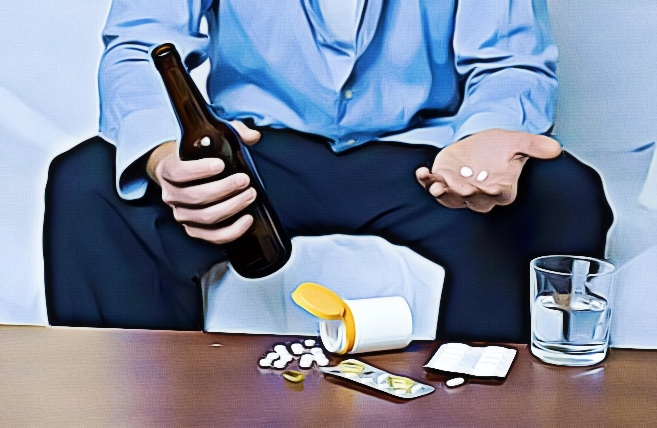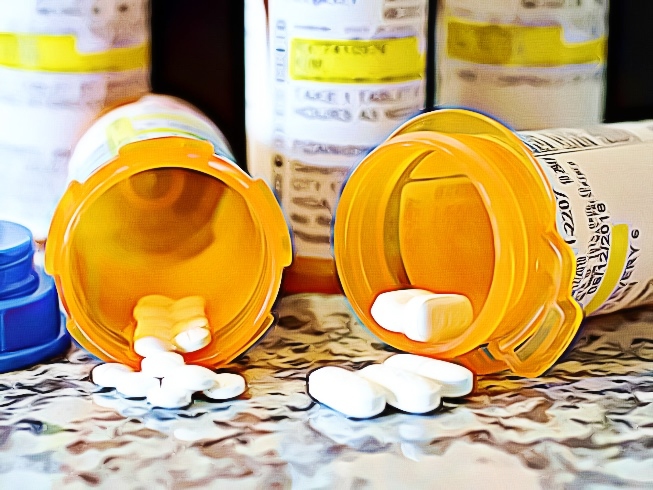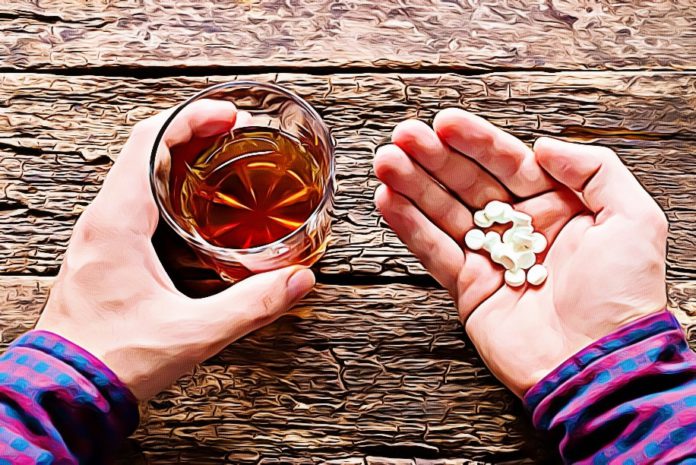The Repercussions of Combining Hydrocodone and Alcohol
Your healthcare provider and the label on your prescription medication will advise against mixing alcohol and prescription pills. Yet, those who can get their hands on it will likely do so for its euphoric effects.
Hydrocodone and alcohol produce similar brain responses, as they are both depressants. When taken together, the risk of overdose and death skyrocket. When mixed, they have sensations such as relaxation and pleasure and hinder one’s ability to think straight or remember occurrences. If an individual passes out and stops breathing, they are likely to suffer heart failure.
Depending on the injury you’re suffering from, your healthcare provider might prescribe hydrocodone. This analgesic is a semi-synthetic opioid that aims to relieve moderate to severe pain as a short-term solution. As a schedule II prescription medication, the only means of access are through a licensed physician.
However, individuals taking hydrocodone are highly susceptible to developing substance tolerance and may seek it illegally. Others might opt to have it prescribed as a cough suppressant in lower doses or via Vicodin, Anexsia, Anolor DH, Norco, and Lortab. Sometimes, the substance is processed with aspirin, though it hardly produces the desired effect than its pure opioid form.

What is Hydrocodone?
Like other opioids, hydrocodone binds to pain receptors in the brain to weaken or block signals. They also impart positive reinforcement of drug-taking and produce feel-good sensations such as euphoria. Thus, once its effects wear off, patients typically yearn to retake the substance.
After repeated use, a patient’s ability to make sound decisions or regulate mood suffers. Unfortunately, it can be challenging to pinpoint early signs of addiction, as a trusted healthcare provider usually prescribes the medication.
Some patients will take hydrocodone beyond their prescribed time frame or ingest the substance in other ways, such as injection or snorting. Addiction to hydrocodone ranges from moderate to severe. If you or someone you know is developing a dependence on the substance, pay attention to signs of overuse or prioritizing taking the medication above personal and professional responsibilities.
Hydrocodone Side Effects
There are dozens of side effects to taking too much hydrocodone, which include:
- Blurry vision and an inability to navigate properly
- Constipation or diarrhea
- Confusion and slurred speech
- Lightheadedness and reduced breathing rate
- Feelings of euphoria
- Itchy skin
- Nausea and vomiting
- Sleepiness or nodding in and out of consciousness
- Slowed heartbeat
- Seizures
- Warm, flushed skin and pinpoint pupils
Long-term abuse can produce even more detrimental effects, such as an inability to control mood or harmful thought patterns. Over time, those dependent on hydrocodone suffer from chronic insomnia, liver and kidney disease, depression and anxiety, and more.
Fortunately, mental and wellness disorders can be treated via regular therapy and medication. However, the effects of kidney and liver damage are irreversible.
In the worst case, taking too much hydrocodone can lead to an overdose. As the body takes on heightened levels of the opioid, it cannot facilitate breathing and heart rates. Thus, these tend to plummet and can quickly starve the brain of oxygen in a process called hypoxia.
Hydrocodone vs Oxycodone?
Though both oxycodone and hydrocodone are narcotic painkillers that serve virtually identical purposes, they differ in the side effects they cause. First, they will interfere with the body’s central nervous system, preventing the body from sending pain signals to the brain.
However, unlike hydrocodone, oxycodone should be taken around-the-clock until a healthcare professional recommends against it. On the other hand, that prescribed hydrocodone will ingest it on an as-needed basis.
In the United States, hydrocodone is the most abused opioid substance. In Europe, the medication is banned entirely.

How Common is Substance Abuse?
According to the CBC, most who abuse prescription drugs will also consume alcohol. In 18.5% of opioid-related emergencies and 22.1% of opioid overdoses, hospitals found traces of prescription medication in their systems.
Nowadays, emergency responders, pharmacies, and even caregivers utilize naloxone to prevent an overdose. This substance rapidly reverses the effects of an overdose by binding to opioid receptors and blocking the response. From there, it restores normal respiration in an individual with slowed breathing or whose heart has stopped.
Unfortunately, naloxone is less effective where alcohol is involved. Why? The drug only aims to stop opioid overdoses—it isn’t equipped to handle other substances. Thus, it may slow the detrimental effects of an opioid overdose but can’t do anything to mitigate excessive alcohol intake symptoms.
Hydrocodone Overdose
Symptoms of a hydrocodone overdose are similar to that of what you would see in someone experiencing the effects of other prescription medication. Immediately phone up an emergency operator if you witness any of these signs:
- Bluish-colored fingertips and lips
- Slowed, labored, and shallow breathing, or a sudden halt in breathing
- Confusion, dizziness, and an inability to remain conscious
- Muscle twitches
- Seizures and other spasms
- A weakness of body and pulse
When coordinating with an operator, provide the following information:
- The person’s age, estimated weight, and condition
- The name of the product, including its ingredients and dosage, if possible
- The amount of substance swallowed and at what time
- Whether the product was prescribed by a healthcare professional or obtained illegally
What Happens During Emergency Treatment?
If you have it on you, take the prescription container to the emergency room with you while a provider takes your loved one’s vital signs. From there, they will perform blood and urine tests, a chest X-ray, and an electrocardiogram (ECG).
Immediately after testing, technicians will provide fluids intravenously, then administer activated charcoal and a laxative solution. They will inject or orally give medication to lower acetaminophen levels in the blood and reverse the effects of the hydrocodone.
Whether your loved one survives or contracts a permanent disability will depend on the amount of hydrocodone ingested. How quickly they receive treatment will also dictate their chances of survival or recovery.
Even after recovery, they might sustain brain damage due to a lack of oxygen, weakened muscles, liver damage, or liver failure.
How to Prevent Hydrocodone Addiction
If you receive a hydrocodone prescription from your doctor, ensure that you take it only as recommended. During treatment, opt to record your pain in a diary to determine the dosage that best mitigates your symptoms.
Even before your prescription runs out, immediately communicate with your healthcare provider if you notice your pain is dissipating. From then, your doctor will likely reduce your dosage gradually to carefully wean you off the substance and avoid shocking the system. If you feel you are craving hydrocodone for reasons other than pain relief, ensure that you communicate this to your doctor as well.
Get Help Today
If you become dependent on the substance and feel you can’t navigate the circumstances alone, don’t hesitate to seek help from the right drug rehabilitation center nearest you. Some programs will substitute other medications to help ease withdrawal, whereas others might incorporate different techniques.
Source:
https://medlineplus.gov/druginfo/meds/a614045.html
https://www.niaaa.nih.gov/publications/brochures-and-fact-sheets/harmful-interactions-mixing-alcohol-with-medicines
















